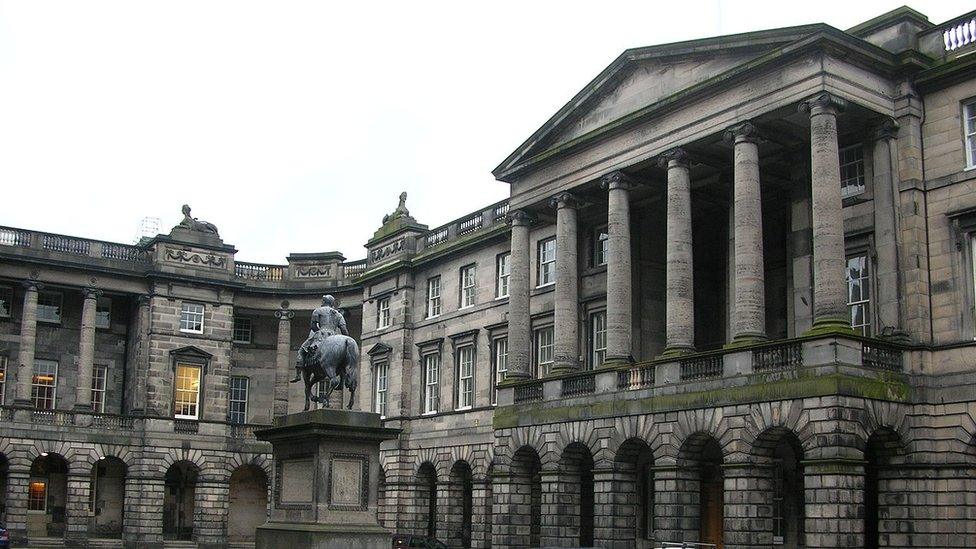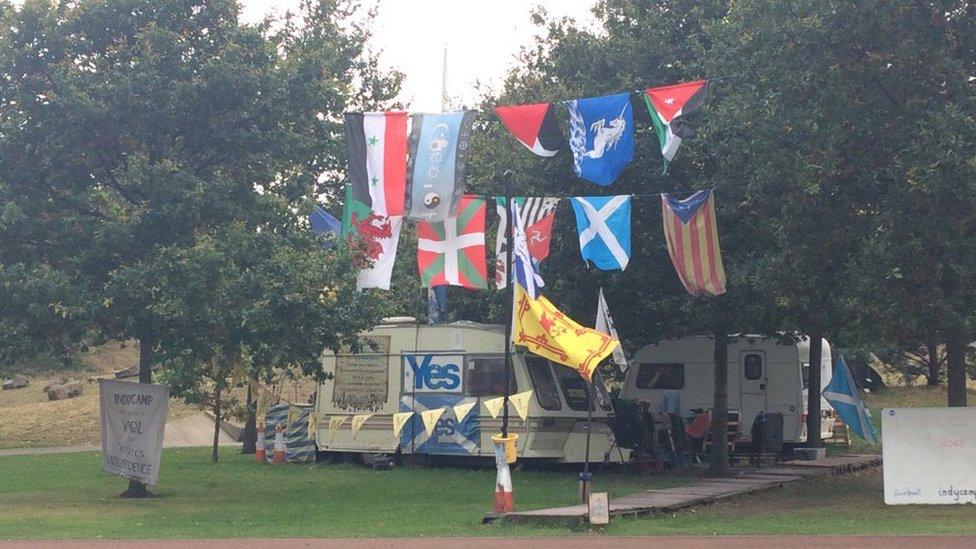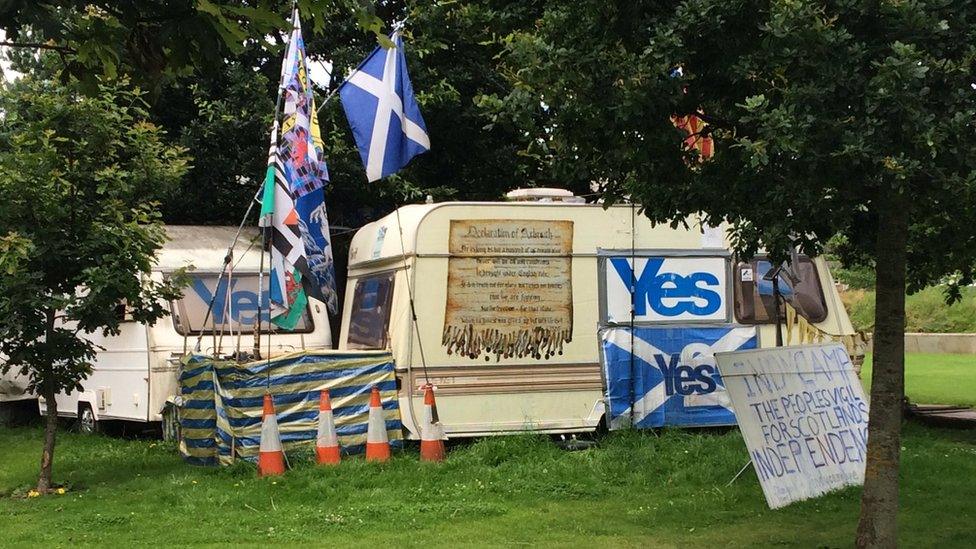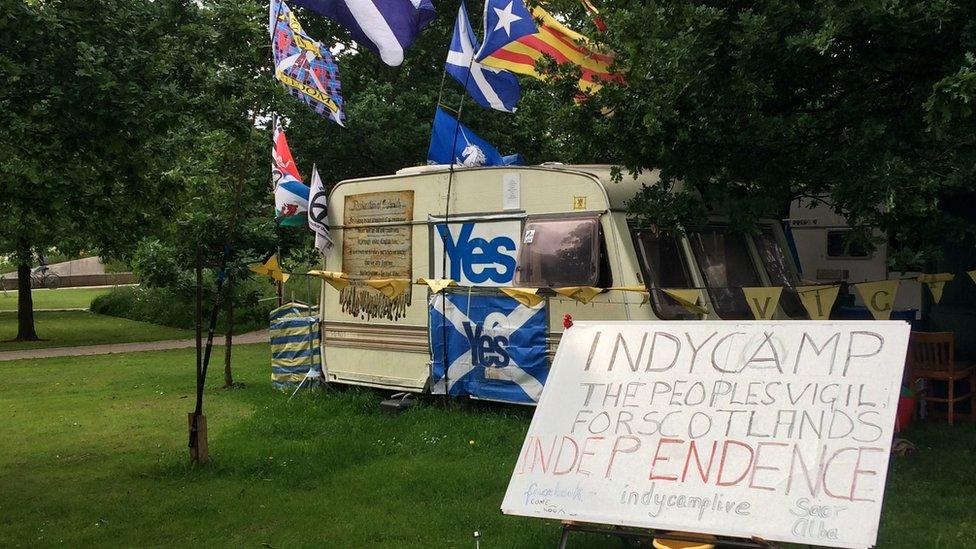IndyCamp eviction appeal thrown out by Court of Session
- Published
The camp was set up outside the Scottish Parliament in November 2015
A group of independence campaigners have lost their appeal against eviction from outside the Scottish Parliament.
The IndyCamp group have been holding a vigil at Holyrood since November 2015, and say they want to stay in place until Scotland becomes independent.
The parliament's corporate body went to court seeking an eviction order, sparking a lengthy legal battle.
The Inner House of the Court of Session has now upheld Lord Turnbull's original verdict that the camp should go.
Lady Dorrian, who heard the appeal alongside Lord Glennie and Lord Menzies, said Lord Turnbull "did not err in his approach".
The judges ruled that there was "no basis" for considering that the group's human rights had been breached.
The order grants parliament permission for "immediate extract", which means the corporate body can apply for an order to remove the camp - something it is understood will be done shortly.
Welcoming the verdict, a spokesman for the Scottish parliament said: "We encourage the protestors to now comply with the court's ruling and leave the parliament estate quickly and peacefully."
Martin Keatings, who represented four of the campers in court, wrote an open letter, external to all of Holyrood's MSPs reacting to the verdict and asking them to save the camp.
He said the campers were "good and honest people who seek nothing but the best for every man, woman and child within Scotland's borders", saying they have been "surreptitiously denied their rights to a fair hearing".
He said the group had been "crushed under the weight of a system which they had very little opportunity to defend themselves from", adding: "These people have in no way committed any such offence, nor disruption which would warrant the disgusting and disproportionate response from the SPCB which they have been subjected to."

The case was heard at the Court of Session in Edinburgh
The parliament has been seeking eviction of the IndyCamp on the grounds that the group are camping without permission, taking up space others could be using and endangering the neutrality of the parliamentary estate.
The group say eviction would infringe their human rights, insisting they have the right to protest and freedom of assembly at Holyrood.
Four different appeals were put forward at the Court of Session, three of which challenged the court's legitimacy - although one was withdrawn during the hearing after a camper who would only be referred to as David claimed that the judges could have broken the law by refusing to recuse themselves and bring in a jury.
Judge Lady Dorrian said there was "no merit" in this, saying the a jury trial was not "a competent way of proceeding".
Mr Keatings meanwhile argued in court that eviction could set a "dangerous precedent" for future cases, calling the idea that parliament could dictate how people express themselves a "scary prospect".
A separate appellant, Richard McFarlane, argued that the court did not have jurisdiction over the case due to the return of Christ, who he said was a supporter of Scottish independence and had given the camp permission to use his land.
Decisions of the Inner House can technically be appealed to the Supreme Court of the United Kingdom.
Scottish Conservative leader Ruth Davidson said "due process" had been served, adding: "Move this eyesore from a parliamentary estate supposed to be for all Scots, not one viewpoint."
- Published19 October 2016

- Published2 September 2016

- Published27 July 2016
